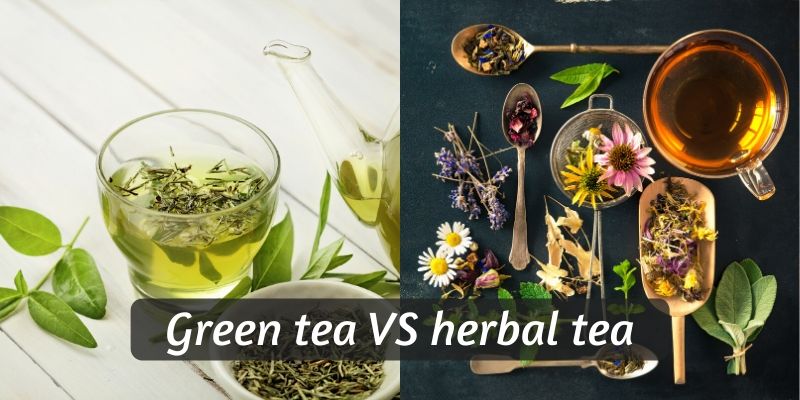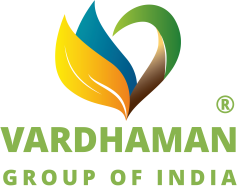
Tea is the second most consumed beverage in the world after water. Not just in India or England, tea is loved all over the globe with its various blends and flavors. Although tea manufacturing companies in India and tea connoisseurs are aware, many people confuse green tea and herbal tea by using both the terms interchangeably. Tea was initially the staple beverage in a few countries, however over time, people started experimenting with its numerous blends, all of which have emerged with their respective qualities and markets.
People have become accustomed to consuming various unique types of tea but are not certain about their disparities. One of the most commonly found confusions is the difference between herbal tea and green tea. As the best tea company in India, here we shall explain the major difference between green tea and herbal tea.
Green Tea VS Herbal Tea:
Green tea is derived from a specific plant, whereas herbal tea is made from any plant. Herbal teas are significantly different from true teas. Herbal tea is made from dried herbs, spices, flowers, or fruits. On the other hand, true teas only include green tea, black tea, white tea, oolong, and Pu’erh and are made from the Camellia sinensis plant.
Additionally, Green tea has caffeine, while herbal teas are caffeine-free.
Key Differences between Green Tea and Herbal Tea:
- Ingredients:
Green tea is made from the Camellia sinensis plant without any additional elements required to complete it. In contrast, herbal teas are made by blending dried herbs, flowers, fruits, spices, etc.
Tea lovers may sometimes add green tea, black tea, or oolong tea leaves in herbal teas to enrich its flavor and benefits, but it does not necessarily require them for consumption.
- The processing:
Green tea, as mentioned, is derived from the Camellia sinensis plant, also used in making black tea, white tea, and oolong tea. The primary difference between these teas is the withering and oxidation process.
Green tea does not undergo an oxidation process while the others do, with black tea ranked as the most oxidized. The dried green tea leaves are poured into hot water, and it is seeped until gaining the preferred flavor.
Whereas, herbal tea does not use the tea plant but is a blend of dried flowers, spices, and herbs. The ingredients are used in dried forms in varying ratios with hot water poured on them, letting it seep for ingredients to reach the desired strength of flavor.
- Benefits:
Both herbal teas and green tea have impactful benefits. Green tea is famous for its rich antioxidant and anti-inflammatory components that are advantageous for health. Similarly, herbal tea includes the benefits of all its ingredients. Hibiscus flower tea actively reduces the risk of cardiovascular diseases and fights obesity.
- Amount of Caffeine:
As herbal tea is not derived from tea leaves, it is free from any caffeine. On the contrary, caffeine is present in all leaf-based teas, including green tea, with minimal caffeine. Therefore, people who love tea but wish to avoid caffeine for medical reasons can switch to herbal teas as they are 100% caffeine-free teas.
- Types:
Both green tea and herbal tea have several variations that people can enjoy, such as,
Types of herbal tea include hibiscus tea, rose black tea, Immunity Booster tea, Tulsi tea, etc., whereas green tea is consumed by adding different variants like honey, lemon, jasmine, etc.
- Safe for Consumption:
It might seem shocking, but it is true! Herbal tea is safe to consume for everyone. However, green tea should be avoided by some people. As herbal tea has no caffeine, it has no severe side effects. Although some herbal teas should not be consumed by pregnant or nursing women (such as raspberry leaf tea), most are harmless.
Green tea is consumed in very small amounts or avoided by pregnant women since it contains caffeine. Young children and elderly people are advised not to drink it unless it is a very weak tea.
Green Tea or Herbal Tea– Which One is Better?
Green tea is adored by all, even more so by health-conscious people maintaining their cholesterol and weight. Although green tea is not processed as much as oolong or black tea, it still includes a significant amount of caffeine.
Nonetheless, green tea also includes benefits such as anti-inflammatory and antioxidant properties. It is known to reduce blood pressure and enhance the glow of the skin.
On the other hand, the most prominent feature of herbal tea is that it is free of caffeine. Some people prefer to exclude caffeine in their daily diet as it can be harmful in excessive amounts.
Types of herbal teas such as Peppermint and Ginger tea are ideal in treating chronic indigestion. Hibiscus tea helps in keeping blood circulation in check, and Chamomile and Valerian tea are sleep inducers for when someone struggles to sleep.
Therefore, both teas have their equal share of benefits in their respective fields, and it is up to the consumers to have their pick.
Vardhaman Tea Trading Company is one of the leading tea manufacturing companies in India. We provide authentic and high-quality flavors of tea, including the best quality green tea and herbal tea.
Visit www.vardhaman.group to learn more.
